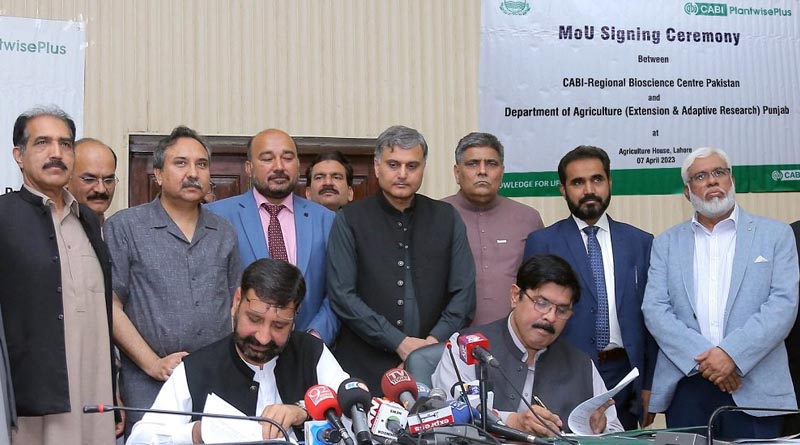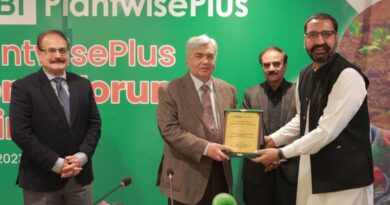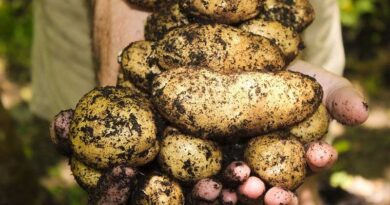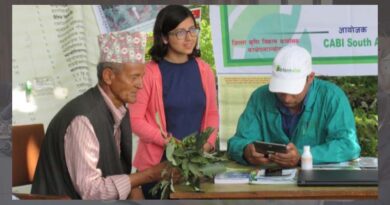CABI signs agreement to help improve food security in Pakistan
11 April 2023, Pakistan: CABI has signed an agreement with the Government of Punjab to help improve food security in Pakistan through the implementation of the recently-launched PlantwisePlus programme.
A ceremony was held on 7 April 7, 2023, in Agriculture House, Lahore, to mark the signing of a Memorandum of Understanding (MoU) between CABI’s centre in Pakistan and the Agriculture Department (Extension & AR) Government of Punjab.
CABI officially launched the PlantwisePlus programme in 2022 to help improve the country’s food security through a more coordinated and sustainable approach to food production across the value chain.
The CABI-led programne will help the Pakistan Government and smallholder farmers predict, prepare and prevent plant health threats to help reduce crop losses and increase livelihoods.
PlantwisePlus will seek to help authorities and food producers adapt to the risks posed by climate change – including adverse weather conditions and the potential spread of invasive pests and diseases – while being mindful of the country’s growing population expected to reach 338 million in 2050.
Pakistan is one of six PlantwisePlus countries that will effectively serve to ‘prove the concept’ for the programme in its delivery of digital innovations. These also include the expansion of its network of plant clinics and plant doctors who help farmers diagnose and remedy their plant health issues.
Particular focus will be on the promotion and use of safer-to-use and more environmentally friendly biological control agents – rather than an over reliance on potentially more harmful chemical pesticides – to protect crops including cotton, rice, maize, wheat and sugarcane.
Dr Babar E.Bajwa, Senior Regional Director, Asia, said, “The signing of the MoU is of strategic importance for the sustainability of the PlantwisePlus programme in Pakisan and is a symbol of the commitment between CABI and the Government of Punjab towards this end.
“PlantwisePlus is building upon CABI’s core strengths in invasive species management and knowledge/research dissemination through collaboration with key partners.
“This includes working closely with the Pakistan Agriculture Research Council (PARC), the Department of Plant Protection (DPP), and provincial departments of agriculture and their extension wings.
“Together we are supporting the national system in how to adopt the best practices in plant health – to improve the safety, resilience and quality of crops which, ultimately, will lead to greater food security and livelihoods for smallholder farmers and their families.”
Dr Muhammad Anjum Ali, Director of General Agriculture (Extension & AR), said the overarching aim of the programme is to reduce hunger through surveillance and response systems that will help to prevent crop losses due to pests and diseases.
“The programme will also help to increase the supply of safe food through a reduction in the use of high-risk practices and facilitate an increase in agri-business-related employment for women and youth,” he added.
He concluded that Punjab provinces are now driving the Plantwise programme with more than 800 plant clinics established and staffed by plant doctors who help smallholder farmers diagnose and remedy their crop health problems.
Dr Ali assured that the PlantwisePlus programme will continue to build upon achievements already enjoyed and build greater capacity in the future as well.
Dr Wasif Khurshid, Secretary of Agriculture, in his closing remarks, said the Government is keen to continue its partnership with CABI through the Plantwise and PlantwisePlus programmes.
“The programmes are playing a key role in building the resilience of smallholder farmers to cope with emerging threats to plant health through integrated and dynamic stakeholder engagements and partnerships,” he said.
Dr Muhammad Naeem Aslam, CABI’s Country Coordinator-PlantwisePlus programme, said it is hoped that this MoU will lead to similar contracts between prominent universities, agricultural research institutions, and with private sector stakeholders who are seeking to build their workforce for agriculture development in the country.
Under the framework of the MoU, CABI is seeking active collaboration for the development of agricultural policy and projects in the country. The aim is to improve and mainstream sustainable agriculture development for poverty alleviation of resource-poor farming communities.
It will strive to do this by identifying key crops where quantity and quality can be improved. Key to this will be the use of digital advisory tools to boost climate-smart plant health practices.
Also important will be the need to increase the supply of and demand for safer, higher quality and locally produced food in domestic markets. Also pertinent is the desire to strengthen detection and response to pest outbreaks, and enhanced availability of safer plant protection products.
(For Latest Agriculture News & Updates, follow Krishak Jagat on Google News)















